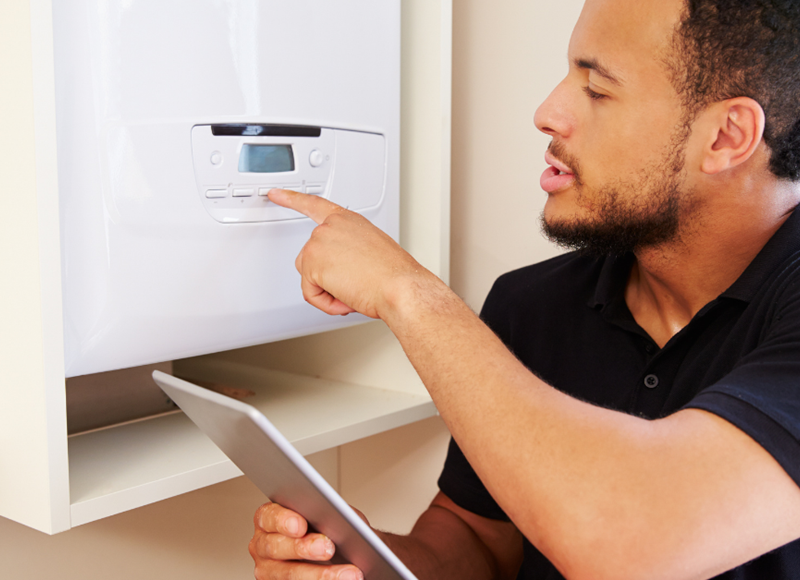Electric Boilers
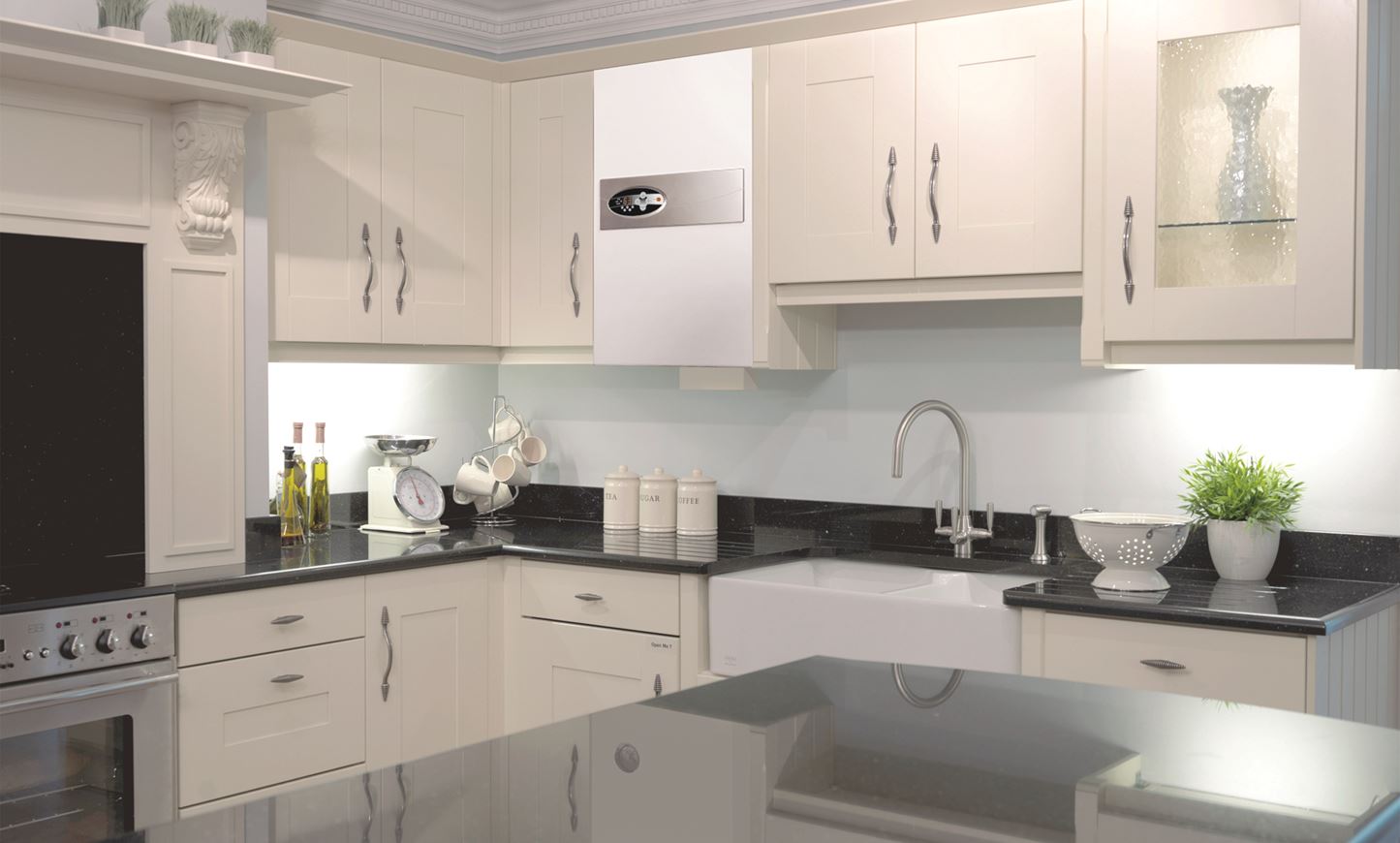
The most efficient choice for a modern wet-heating system
-
Simple to install
Electric boilers can usually fit where your existing oil or gas boiler is fitted, and you can normally connect to your existing radiators or wet underfloor heating system.
Please note it takes time to move to an all-electric system and recommend discussing this with your installer.
-
Practically 100% EfficientWatch the video
This means every £1 you spend on electricity will give you £1 worth of heat for your home. A new gas or oil boiler will always be less than 100% efficient and will become even less efficient as they age.
-
Zero harmful emissions
Meaning the air both inside and outside of your home is cleaner. And as over 90% of Guernsey’s electricity is imported renewable energy, it is more environmentally friendly than gas, oil or solid fuel from start to finish.
Compare your options
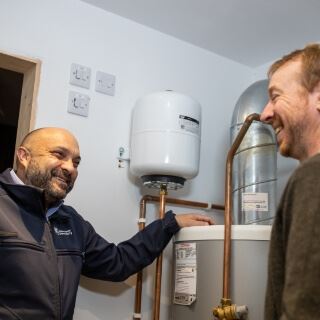
This will help save costs by not having to replace these items unless you’re looking for a more updated look and feel.
Electric boilers heat the water directly without burning any flammable fuel in your home. This is why you don't need a flue to extract any exhaust gases as electric heating doesn't produce any. The lack of any flames and potentially dangerous fumes also means there are fewer building regulations to comply with which can save you time, and also means no carbon monoxide detectors are needed.
If you use oil to heat your home, you'll also lose the oil tank in your outdoor space and all of the safety regulations that come with it.
Many home electric heating systems can also be easy to manage using smart controllers that allow you to decide when exactly you want to switch the heating on. This helps reduce wasted heat, your running costs, and increases efficiency.
Electric boilers heat water for your heating system and can also heat water for cooking and washing. However we recommend that you heat your hot water using the elements in your hot water cylinder, connected to your Economy 12 meter. Then use a timer to ensure you're heating the hot water in your low-rate times. This makes it cheaper to run, and if you set your timer from 11pm to 5am it'll also be heated using 100% renewable electricity.
The 'fuel' (electricity) needed to power your heating arrives at your door, on-demand, meaning no fossil fuels need to be burnt in your home to produce heat. This also means no need to wait for the lorries to fill your oil tank or deliver new gas cylinders - which takes a few more delivery miles off Guernsey's carbon footprint.
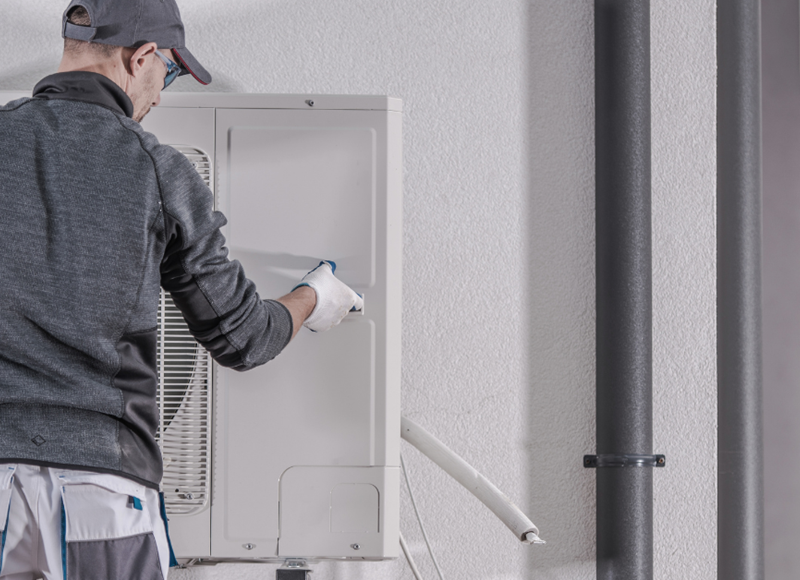
You may need a smaller electric boiler than your current oil or gas boiler.
You will only ever need to replace the actual heat that your property loses. A heat loss calculation will tell your installer how large the boiler for your property needs to be. It might be that you have a well-insulated home that doesn’t need to replace as much heat as another property of similar size.
A larger boiler will not benefit you in any way, and could even make your heating system less efficient.
Don’t wait for your boiler to break midwinter to make the change.
Spring and Summer are the best time to make the switch. As with a house extension or roof replacement, it takes time but is worthwhile.

Power Supply
It’s really important to plan ahead and check if your property needs an electricity supply line cable upgrade.
Electricity is delivered to your door through an underground network of cables. Some properties don’t have enough capacity in the existing supply line cable to power your new heating system and will need an upgrade.
Your installer will check this with Guernsey Electricity by submitting an additional load application normally done after you've accepted your preferred installer's heating quote.
-
 Fusion Comet BoilerThis flow boiler will heat water to run a traditional wet radiator system and/or an underfloor heating system. They're available in a wide range of heating capacities to suit all building types.
Fusion Comet BoilerThis flow boiler will heat water to run a traditional wet radiator system and/or an underfloor heating system. They're available in a wide range of heating capacities to suit all building types. -
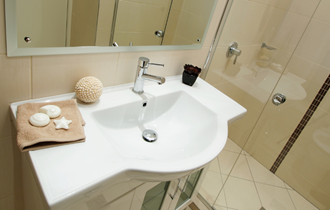 Fusion Astro Combi BoilerThis combination boiler provides both heat and hot water. It's only really suitable for small, one-bedroom properties with a shower.
Fusion Astro Combi BoilerThis combination boiler provides both heat and hot water. It's only really suitable for small, one-bedroom properties with a shower.
Frequently asked questions
Making the switch to electric heating is a fantastic investment for your property. Like any property upgrade, the installation will take time to complete and we want to help answer your questions before you make the decision to change.
No - unless you are replacing an existing electric heating system. However, your preferred installer will always do their best to provide a solution in an emergency.
Switching to an electric system is a positive development for your property and similar to other property improvements such as extensions and roof renovations, it will take time to complete.
Lead times will vary depending on workload and availability, and it is worth preparing for your switch to electric heating well in advance. Please be aware that your property may need a supply line cable upgrade which will add to the timeframe.
We also recommend switching during the spring and summer months when possible so the work can be carried out when you do not need to use the heating. Depending on the work required, it may take several weeks from start to finish.
We recommend checking current prices and tariffs online first.
Use our online calculator to compare heating running costs
Heating systems only replace the volume of heat lost from your property, which means property insulation is the most effective way to reduce the running costs of any heating system.
Off-Peak Storage Heating
This heating system runs on the cheapest tariff available for electric heating as, like a battery, they're designed to store heat energy during your low-rate overnight periods. This cheaper stored heat can then be used during the day as and when you need it.
Please check our Super Economy 12 'Low-Rate' prices here. Your low-rate time bands are printed on the back of your electricity bill.
Electric Boilers and Underfloor Heating
These run on the Superheat Tariff.
Electric heating is costs significantly less to run than gas heating in Guernsey.
Oil is one of the cheapest commodities and although oil heating systems may initially have a lower running cost when new at around 91% efficiency, over time the cost to run your oil heating will increase as your boiler's efficiency decreases.
Some customers have replaced oil boilers working at less than 70% efficiency, meaning over 30% of their bill was used to pay for waste greenhouse gas emissions rather than valuable heat for their home.
Air Source Heat Pumps
This is the least expensive way to heat a property and runs on the Heat Pump tariff.
Unlike other heating systems, air source heat pumps provide three times as much energy as is put in. This means that for every £1 spent on electricity to run the heat pump, you could generate £3 worth of heat for your property.
If you’d like to make the switch to electric heating but are unsure about the upfront cost, you may be able to receive a preferential rate from lenders who offer "green lending".
Your best option would be to get in touch with your preferred lender and enquire about discounted loans based on purchasing an electric heating system as an alternative to gas or oil.
A header tank is used to supply water to the central heating system. It will maintain the level of water needed as the water expands when heated.
A new electric boiler needs a pressurised system and therefore won't need a header tank. If you have an existing gravity-fed hot water cylinder, this should be changed to a pressurised system at the same time as a boiler install. This will mean your header tank becomes redundant.
Replacing your gas or oil boiler whilst retaining your existing radiators is the quickest and most simple option. This is known as a ‘wet system’ as it relies on water heated by electricity to be pumped around the property.
Moving to electric radiators is known as a ‘dry’ system.
This doesn’t need a boiler and all existing radiators linked by pipework can be removed. Electric radiators are then installed throughout the home with a cable supplying each radiator to power it individually. This means each radiator is powered independently and has its own programmer and thermostat.
The main benefits of a dry electric heating system are:
- no water pumped around the property which reduces the risk of leaks.
- if one radiator fails, the others will still work unlike a wet system where if the boiler fails, there is no heat for the home.
- each room can have accurate temperature control e.g. your lounge can be warm and cosy at 21°C, and the spare room can be as low as 12°C just to keep it aired.
We recommend your electric hot water cylinder is installed with a timer to take advantage of your low-rate Economy 12 electricity tariff. Modern hot water cylinders are very well insulated and will normally keep your water warm during the periods your timer switches off the heating elements.
If you heat up during your low-rate time bands, this will cost you over 50% less. And if you heat your water between 23:00 and 05:00, you will also be using 100% renewable electricity as the power station is not required as a top up during this off-peak period.
Using the immersion element in a water cylinder, the water is heated up in a similar way that a kettle boils water. The immersion element has a thermostat inside which only allows the immersion element to heat the water up to the desired temperature (usually 55°C). Once the cylinder temperature is achieved, the immersion element will switch itself off and on to maintain the desired temperature in the cylinder.
This will continue throughout the day unless a timer is fitted to control when the immersion element can be activated. This allows you to heat the cylinder water up solely in the Economy 12 low rate, therefore saving money on your electricity bill.
If the supply line cable supplying your property has sufficient capacity, you will not need an upgrade. However to find this out, your installer will need to submit an 'additional load' application.










